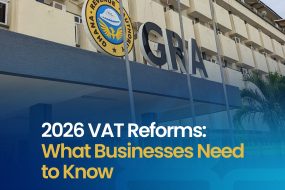
Growth is frequently stymied by a range of formidable obstacles in the ever-changing environment of African small and medium-sized enterprises (SMEs). One obstacle, however, stands out more than the others: poor bookkeeping for SMEs. These SMEs frequently lack organized financial plans and documentation, making them vulnerable in the area of financial management. This shortcoming becomes a major roadblock, making it difficult for them to assess performance and obtain crucial funding. As a result, opportunities for growth frequently slip through their fingers, resulting in financial constraints.
Empowering African SMEs through Effective Bookkeeping
This article highlights the critical role of bookkeeping for SMEs in Africa, emphasizing its importance and providing implementation-ready insights. It explains how meticulous financial records can be the key to resolving financial quandaries, overcoming obstacles, and achieving significant growth. This article aims to inspire and empower African SMEs to thrive in a competitive business landscape by emphasizing the importance of maintaining accurate financial records.
Bookkeeping Methods
SME owners must think about choosing a bookkeeping and accounting system for their company. There are two main options to consider: manual bookkeeping and digital bookkeeping. Manual bookkeeping uses handwritten records and is less expensive, but it is susceptible to human error. Built, computer-based bookkeeping software is used in digital bookkeeping. It saves time on tasks such as data entry, report generation, and tax compliance. It improves accuracy by reducing human errors and saves money by eliminating the need for additional staff. Furthermore, it provides valuable financial insights for informed decision-making and improves security through simple record backup, mitigating potential losses from events such as fire or theft.
A Distinct Set of Bank Accounts
Maintaining separate bank accounts for your personal and business finances is a wise decision for small business owners. It simplifies expense tracking and income management, making financial management a breeze. By segregating your personal and business finances, you steer clear of financial discrepancies that could discourage lenders and potential investors from partnering with you. I strongly recommend setting up distinct bank accounts for your business and personal finances; it not only streamlines expense and income tracking but also adds ease to financial management.
Outsourcing to Professionals and Freelancers
Outsourcing bookkeeping to professionals is similar to hiring an in-house accountant. SMEs partnering with a freelance accountant delegate financial tasks, freeing up time and resources. This enables a sharper focus on core activities, like strategic expansion and marketing, while ensuring financial precision. It’s like having a financial ally, ensuring order in numbers, and allowing business owners to thrive at what they do best: growing and promoting their business.
Navigating Compliance and Tax Management: The Power of Proper Bookkeeping
Proper bookkeeping practices are essential for businesses to comply with regulatory norms and ensure effective tax management. By maintaining clear financial records, businesses can optimize deductions, minimize liabilities, and meet their tax obligations punctually. For instance, an SME streamlines its reporting obligations to both authorities and financial institutions through meticulous record-keeping. This not only fosters a reputation for transparency but also avoids potential penalties and legal complexities associated with non-compliance. Good bookkeeping practices can help businesses stay on top of their finances, make informed decisions, and foster a culture of financial responsibility and regulatory compliance.
Credit Access: Seizing the Bookkeeping Advantage
In the African SME landscape, financial precision acts as the gateway to credit access. Proper bookkeeping practices are essential for African SMEs to gain access to much-needed funding. By maintaining clear financial records, businesses can instill confidence in potential financiers and position themselves as reliable partners, opening doors to capital infusion and opportunities for expansion. Financial precision is not just a virtue but a vital strategy that paves the way for SMEs to secure the funding required to fuel their growth and realize their entrepreneurial dreams.
Conclusion
In the dynamic landscape of African SMEs, the significance of sound bookkeeping cannot be overstated. It’s not merely a task but a linchpin that holds the key to unlocking growth, overcoming challenges, and securing a prosperous future. By maintaining accurate financial records, businesses in Ghana and across the continent can enhance their financial health, navigate regulatory complexities, and gain access to the crucial funding needed for expansion. Join the Financial Revolution: Subscribe to Built Software Now!












No Comments